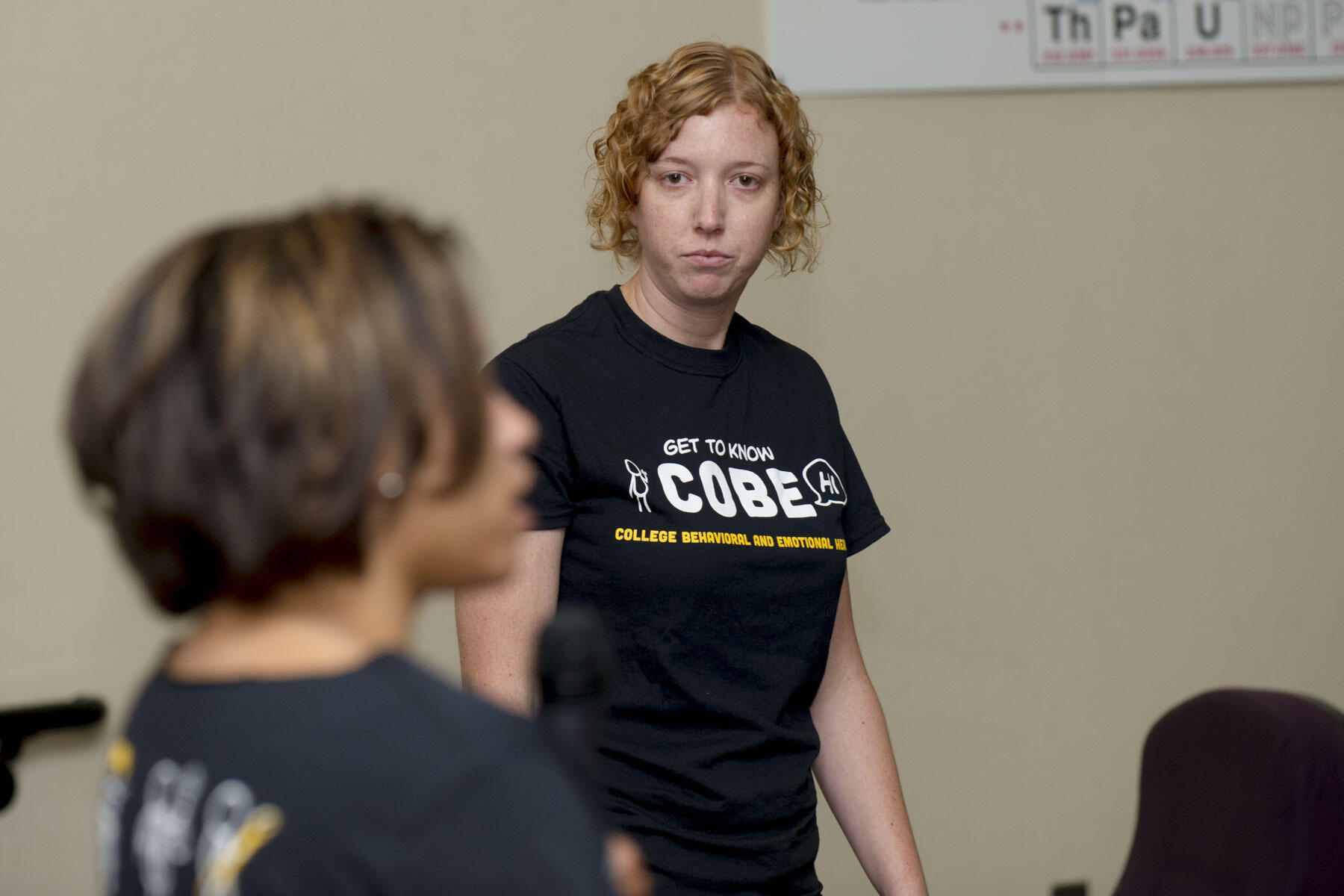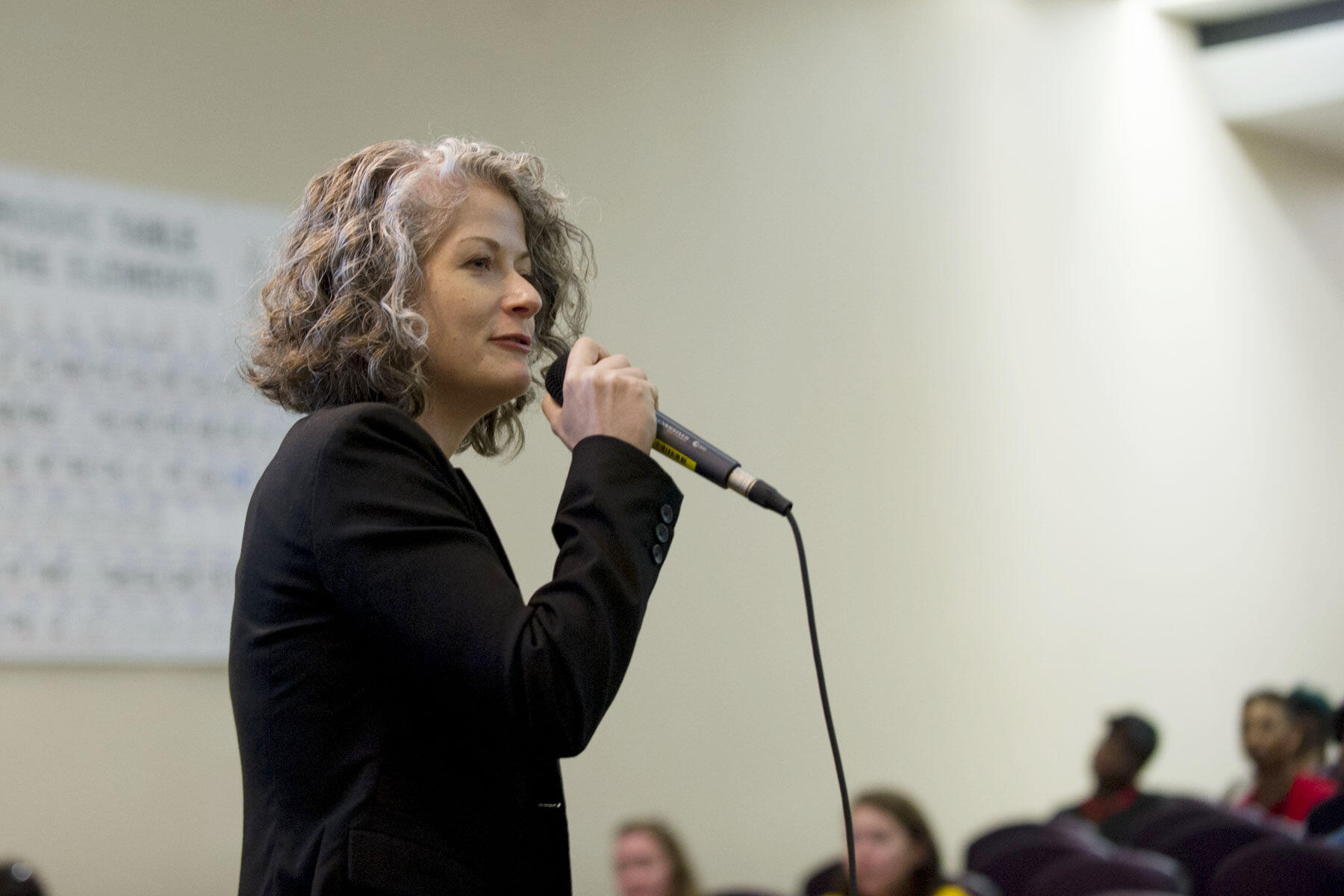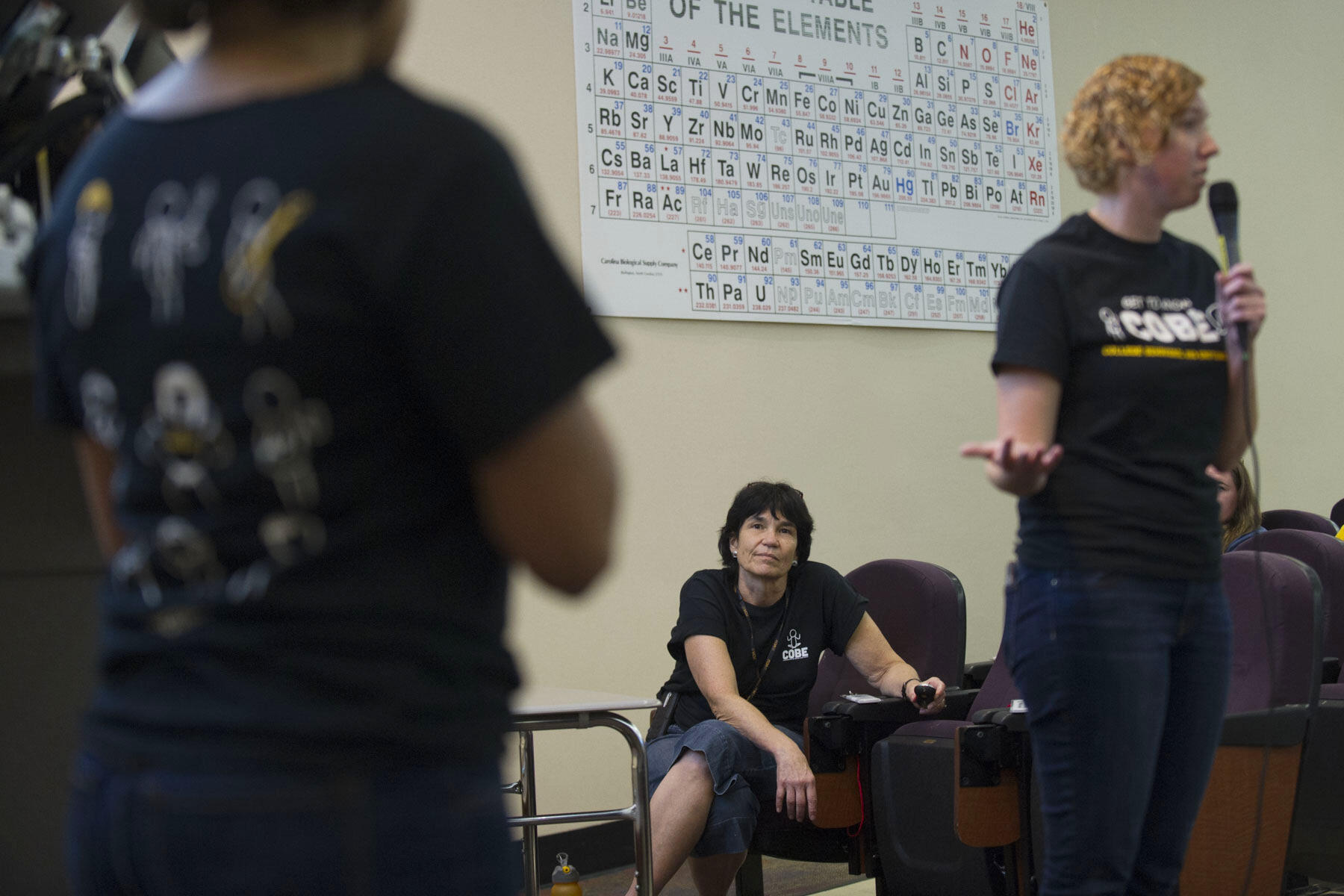
Aug. 26, 2016
Keeping the Class of 2020 healthy and safe
Welcome Week event Love & Liquor explores Title IX rights, alcohol and sex, and relationship abuse.
Share this story
Virginia Commonwealth University students are healthier than you — and they — think.
That’s the message registered nurse Linda Hancock, Ph.D., conveyed to the Class of 2020 at the interactive Welcome Week event Love & Liquor.
Sponsored by The Wellness Resource Center and Residential Life and Housing, the annual event lets students respond in real time with clickers and smart phones. While conducted with a light-hearted air, the session explores serious issues such as Title IX rights, alcohol and sex, and relationship abuse.
Since the event focused on keeping students safe and addressing misperceptions versus reality, the first key message was to know how to recognize relationship abuse so you can stop it. It’s easy to spot someone with a black eye, but there are a lot of other nonphysical abusive tactics of power and control, said Kaylin Tingle, LGBTQ violence prevention health educator at The Well.

Hancock, director of The Well, showed the students “Because I Love You,” a powerful video by One Love Foundation that shows how that simple statement of care can escalate to one of control. Examples are, “Because I love you, blow off plans with your friends tonight. You should want to hang out with only me,” “Because I love you, you should let me read all of your texts … whenever I want,” and, “Because I love you, I don't want you talking to that person.”
What should you do if a friend shares with you that they’ve experienced abuse or an assault? Thank them for opening up to you, Tingle said. Support them and ask them what they want to do right now. It’s important to let them know that you believe them and that it’s not their fault.

If that friend was drinking or under the influence of narcotics during the incident, it’s still not their fault. If they do not want to report an incident because they were under illegal substances at the time, that’s the last thing they need not worry about, said Tammi Slovinksy, deputy Title IX coordinator for Student Affairs.
“We have an amnesty policy,” she said. “If you’re drinking or doing drugs, you won't get in trouble for those things. We don't want you to worry about that.”
Even if you recognize relationship abuse, what can you do? According to The Well, almost three out of four crimes are witnessed by people who could have intervened. Interventions could include calling the police — anonymously through the LiveSafe app if you don’t want to get involved — distracting the offender by saying something such as the “cops are coming” regardless of if they are or not, or disrupting the event by spilling something on the victim-to-be as an excuse to lead them away to get cleaned up.
It turns out the Class of 2020, as well as their predecessors, are actually quite safe when it comes to love and liquor.
People have
these huge misperceptions.
“People have these huge misperceptions,” Hancock said, which she proved by taking an instant survey. The first question: how many days per week do you think college students drink energy drinks?
Only 7 percent of the group thought that college students don’t drink energy drinks at all. Yet, when asked how many days per week they themselves drink energy drinks, a surprising 95% indicated they don’t drink any.
“This is a classic misperceptions reality gap,” Hancock said.
When asked to guess how many sex partners the people in the room had during the past year, 22 percent said zero to one, compared with the 71 percent who indicated they had zero to one partners.
In every survey she’s conducted, Hancock said, the most common response is always zero to one.
“If all our culture tells you is ‘don't drink, don’t drink, don’t drink,’ you might think that everyone drinks, but do they?” she asked. “Or they may say ‘don't have sex, don't have sex, don't have sex’ and then we’re sure everyone’s getting it but us, right?”
While only 27 percent of the students thought their fellow attendees drink alcohol zero to five days per month, 75 percent indicated that they themselves actually fall into that category.
The low percentage of heavy drinkers is encouraging, but Hancock warned how easy it is to get into a rut even having one drink or toke a day.
“As a nurse, I get how your brain works,” she said. “If you type your password a million times for three months, how hard is it to change your password? Doesn't it drive you crazy that day you have to change your password?
“If you drink a beer every night when you go home, anything that becomes a habit moves from your prefrontal cortex into your brain stem. That’s where habits live, at the brainstem level and they are hard to change. So if every night you have a beer, it's going to be really hard to change. If every night you light up after school is done, it’s gonna be really hard to change.”
If you really like that molecule and you're willing to take the legal risk, Hancock said, at least keep it to special occasions, so it doesn’t become so hard to quit.

Subscribe for free to the weekly VCU News email newsletter at http://newsletter.news.vcu.edu/ and receive a selection of stories, videos, photos, news clips and event listings in your inbox every Thursday.
Subscribe to VCU News
Subscribe to VCU News at newsletter.vcu.edu and receive a selection of stories, videos, photos, news clips and event listings in your inbox.











